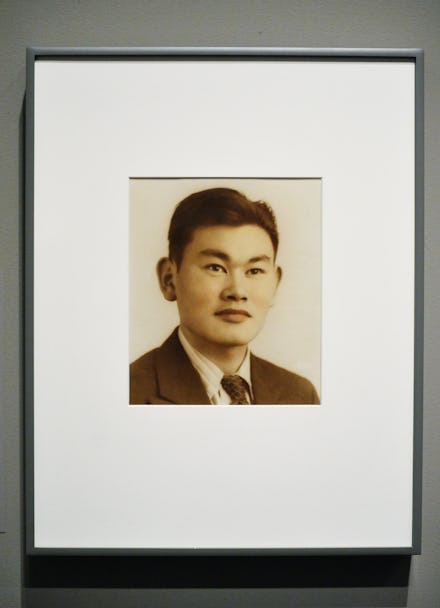Who was Fred Korematsu? What the WWII activist can teach us about Trump's America

Fred Korematsu, the civil rights hero who crusaded against the United States' internment of the Japanese in the 1940s, is the subject of the Jan. 30 Google doodle.
The digital tribute honors Korematsu, who died in 2005, on what would have been his 98th birthday. In 1942, the activist was arrested for evading Japanese internment, which eventually prompted the American Civil Liberties Union to step in and challenge his conviction in the landmark Supreme Court case, Korematsu v. United States.
In one of the most contentious rulings in its history, the Supreme Court upheld Korematsu's conviction as constitutional. It's a decision that's still referenced today by current Supreme Court justices as a blemish on the nation's history.
"The decision has been so thoroughly discredited," Justice Stephen Breyer wrote in his 2010 book, Making Our Democracy Work, "that it is hard to conceive of any future court referring to it favorably or relying on it."
But as the first weeks of 2017 have proven, history has a tendency not to stay in the past. On Jan. 27, President Donald Trump issued a sweeping executive order on immigration that put a temporary ban on most citizens from seven Muslim-majority countries, and also placed a four-month hold on the acceptance of all refugees.
As protests against the executive action mounted in airports across the nation, reports began to emerge on the people it had affected — including families, green card-holding travelers and interpreters who had risked their lives to assist the U.S. military.
Looking ahead, here's what Korematsu's life can teach us about our current political moment — and why his story is now more relevant than ever.
Trump's recent executive orders trade in the same type of xenophobic fear-mongering
Although the Japanese internment camps of Korematsu's day may seem like a nightmarish and distant past, battles over the constitutionality of excluding large segments of the U.S. population based on ethnicity have already begun under the Trump administration.
To better understand the America of today, it's important to look back on the decisions of an America gone by — especially through the eyes of the members of persecuted groups like Japanese-Americans — and remember that they often don't stand the test of time.
Two months after the Japanese bombed Pearl Harbor, U.S. President Franklin D. Roosevelt issued Executive Order 9066 for the removal of all Japanese-Americans from the West Coast, regardless of their citizenship.
Lt. Gen. John DeWitt, who helmed the the Western Defense Command at the time, described the Japanese, in no uncertain terms, as the "enemy."
"The Japanese race is an enemy race," DeWitt wrote. "And while many second- and third-generation Japanese born on United States soil, possessed of United States citizenship, have become 'Americanized,' the racial strains are undiluted."
Sound familiar?
American fear has always had a tendency to result in jingoistic convulsions. But Korematsu resisted the government's characterization of him as being a threat to the nation, insisting that America was his home, too.
In one of his final essays, published in the San Francisco Chronicle in 2004, Korematsu wrote:
Of course, I was no spy. The government never charged me with being a spy. I was a U.S. citizen born and raised in Oakland. I even tried to enlist in the Coast Guard (they didn't take me because of my race). But my citizenship and my loyalty did not matter to the federal government.
History is always in danger of repeating itself
In 1983, Congress issued a declaration that the ruling on Korematsu's case had been, "overruled in the court of history," and in 1998 President Bill Clinton granted Korematsu the Presidential Medal of Freedom.
But later in the same piece for the Chronicle, Korematsu expressed dismay in modern resurgences of the idea that the internment of the Japanese had been justified, citing Fox News personality Michelle Malkin as one of the pundits responsible for making the dangerous claims:
It is painful to see reopened for serious debate the question of whether the government was justified in imprisoning Japanese-Americans during World War II. It was my hope that my case and the cases of other Japanese-American internees would be remembered for the dangers of racial and ethnic scapegoating.
And now, in 2017, President Trump's executive orders cracking down on predominantly Muslim immigrants and refugees entering the U.S. harken back to the days when Japanese-American citizens were swept up in a wide net of nationalism, unfairly persecuted because of their ethnicity.
If we are to keep history from repeating itself, it's important to remember the battles fought by crusaders like Korematsu, in order to ensure that the arc of the moral universe does, indeed, bend towards justice.